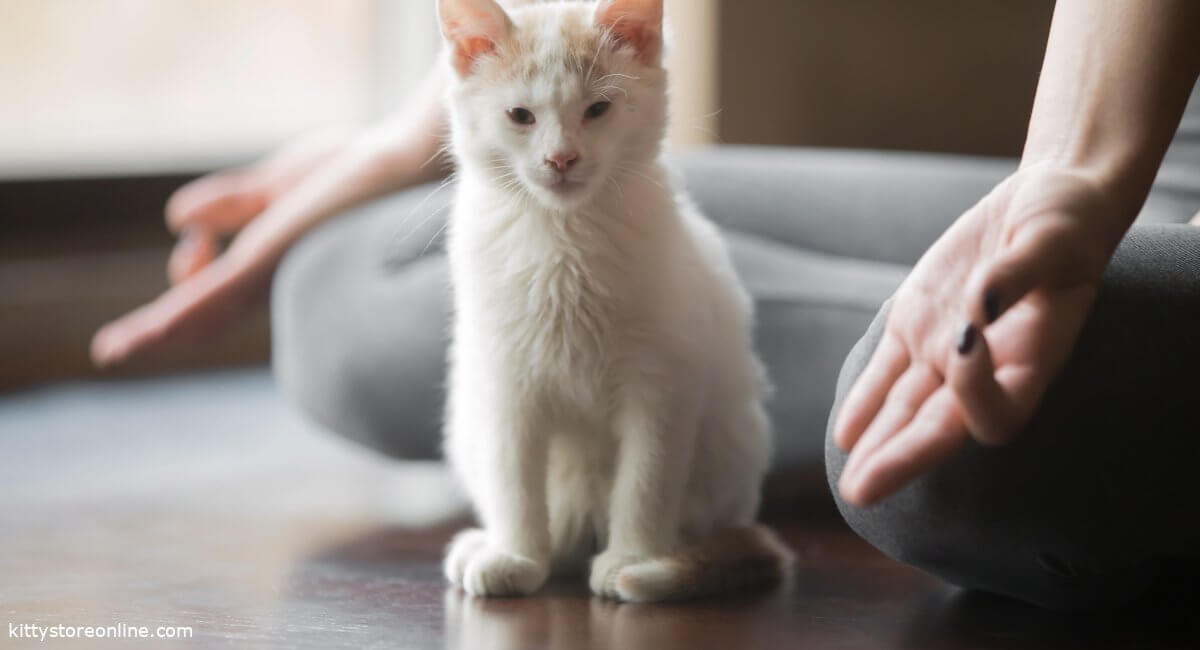Just as for other pets, clicker training is also suitable for cats, male cats and kittens. Clicker training can facilitate coexistence between humans and cats, shy cats become more trusting and desirable behaviors can be trained. This includes going into the unloved transport box. Clicker training is definitely an alternative to constant admonitions and nasty looks when the cat has done something wrong. In addition, house tigers are better utilized by clicker training..
What is clicker training, anyway?
With the clicker in your hand, you make a sound by pressing a button on the top of the device, a “snap-crack” due to the deformation of a metal strip inside when you press the clicker button. The clicker sound is without emotion, anger or haste and does not belong to the everyday sounds, so the cat can remember the sound well. Now, if the cat shows a desired behavior, you need to press the clicker within 1-2 seconds and associate the click-clack sound with a reward. Important: The reward is given only when the cat has performed the desired action. A punishment for doing nothing is not intended in clicker training, because the clicker activates the reward center in the cat’s brain. The neurotransmitter dopamine for learning, endorphins for happiness, and oxytocin, which strengthens social bonds and gives trust and security, are released.
No products found.
Start clicker training
In principle, training can be started at any age of the cat. But: young cats are usually still too playful for clicker training. Better start training with the cat at the age of 1.5 to 2 years, when he has become more sedate. The training sessions are kept short, so as not to overtax the cat. Practice at the beginning at most 10 minutes. For this, the training can take place all the more often. You need a clicker and enough treats as a reward. You can get special clicker cat food for clicker training in stores. For the first clicker training, look for a quiet environment with few distractions. How to do it: Click and give the cat a reward immediately after the sound. Repeat this several times in a row: click-clack treat, click-clack treat, click-clack treat, without the cat having to do anything. You may need to repeat this training session for several days until the cat associates the sound with the treat. After that, you can move on to rewarding the cat for specific behaviors. This may be when:
- when the cat comes when called
- when the cat jumps through a hoop
- when the cat rises up on its hind legs
- when the cat retrieves something
- when the cat does a roll on the floor
You can click when the cat uses the litter box, when she scratches the scratching board instead of the furniture, and when she does not beg at the table, for example, but lies down beside it. Sport exercises can be linked to a short code word in clicker training cat. The shorter, the better the cat can remember the word. You say a word, the cat performs the corresponding command, you click and the cat gets its reward. Don’t click too late, so the cat is guaranteed to associate the reward with the command performed.
Feed your cat correctly
No products found.
Practice, practice, practice
No master has fallen from the sky. Practice patience if the cat takes longer to understand clicker training or if the house cat doesn’t feel like it or is having a bad day. Always end the training with an exercise that the cat enjoys. When buying a clicker, pay attention to the volume of the clicker. Some clickers are too loud for cats and only suitable for dogs. Better you buy a quiet clicker for sensitive small animals, the sound of which sounds very soft to the human ear. Multi-clickers have different volumes for close training and distance training when the cat is farther away. If the clicker is too loud, you can enclose the clicker with your hand to muffle the noise. Most clickers are made of plastic. The clicker tongue is made of stainless steel. Make sure the clicker fits well in your hand and is easy to handle. If the clicker is attached to one finger, it lies on the palm of the hand and can be easily operated with another finger. An ergonomic shape and an arm or finger loop are advantageous. The size is with 6-7 cm x 4 cm x 1,8 – 2 cm and a weight of approx. 10 g with most manufacturers the same. An advantage is a user manual or tips for clicker training included. Do not aim the clicker at the cat. Only the sound counts.
Dangers and benefits of clicker training
If you click too late, the cat associates the signal with an undesirable behavior that the cat is supposed to discard. The marker signal click-clack programs the cat to reward a specific behavior when the tone is sounded. The tone is always the same high or low, so the cat can’t tell from it any mood changes of its caregiver. Clicker training strengthens the bond between human and pet.
